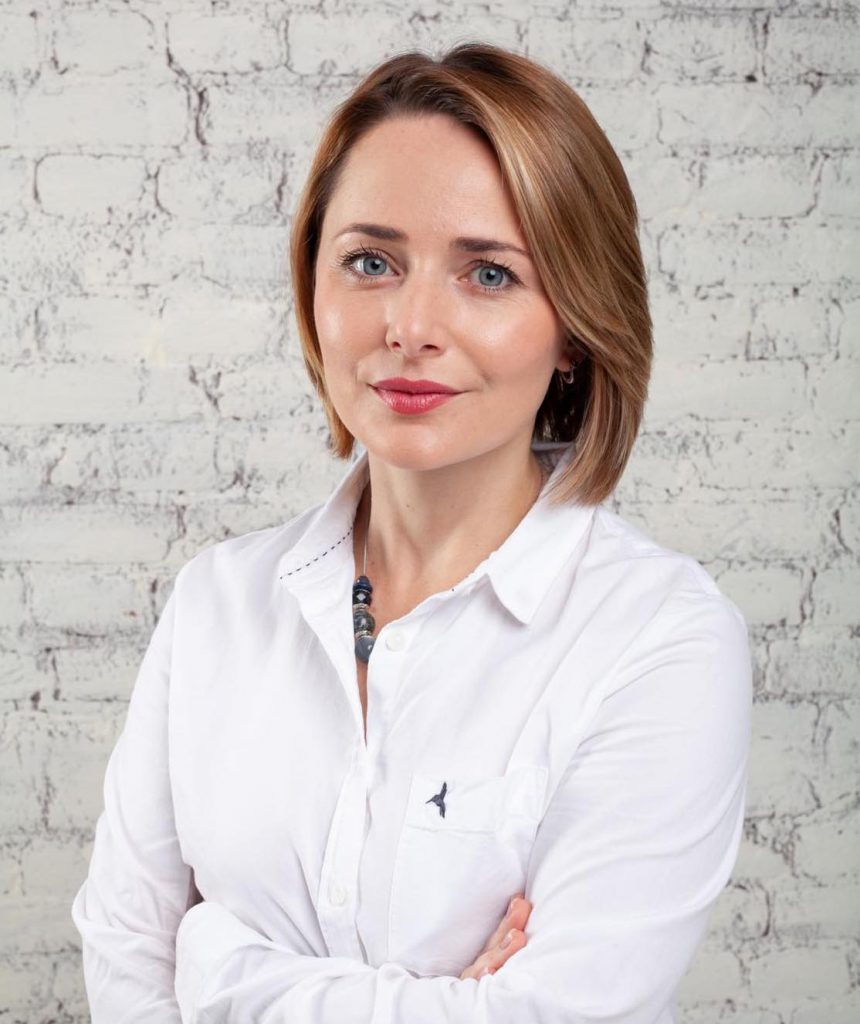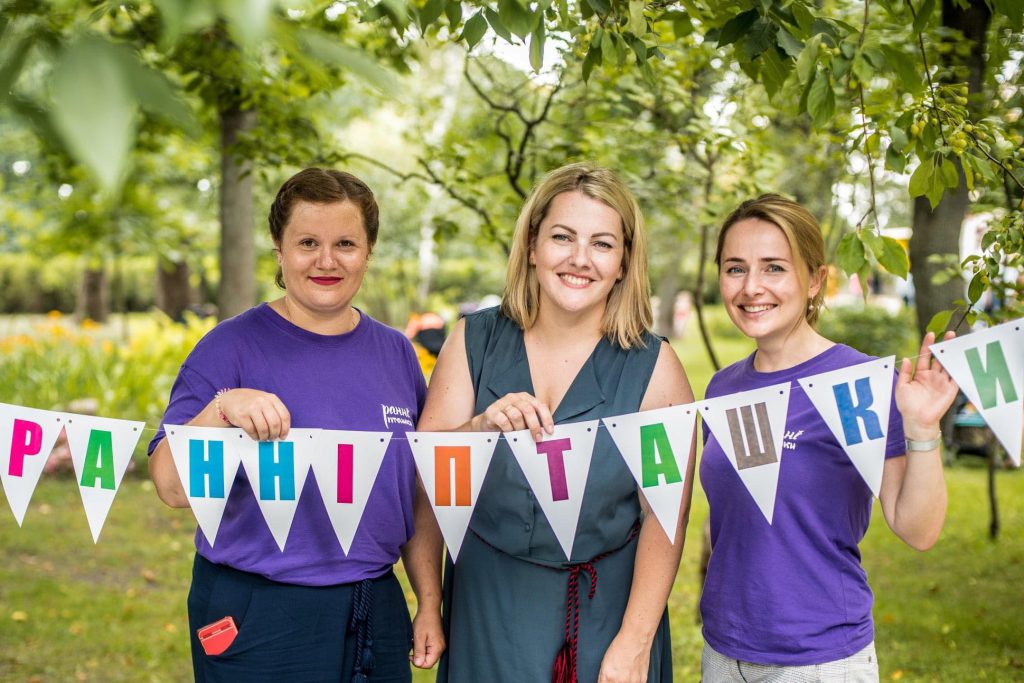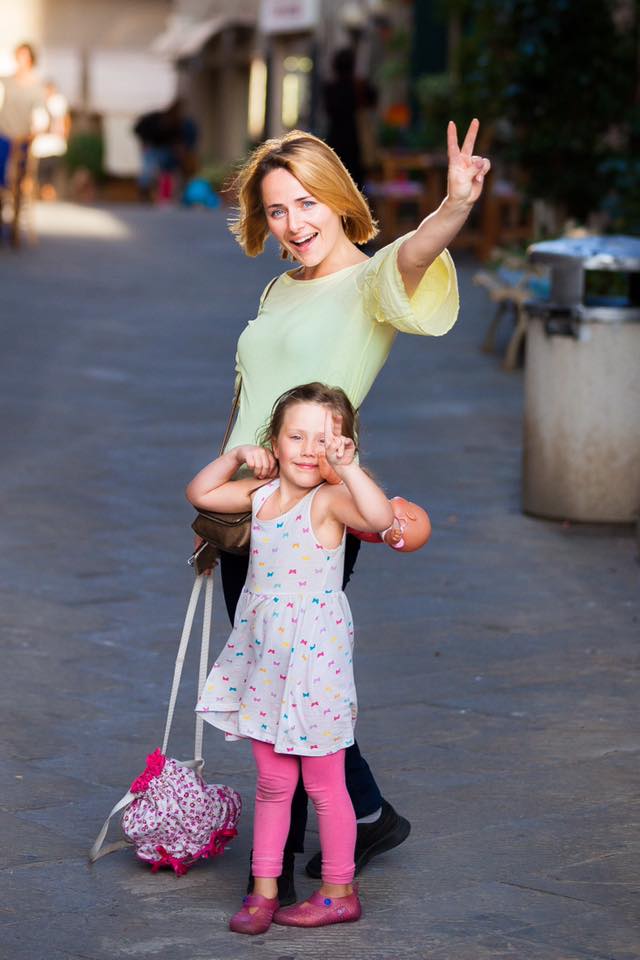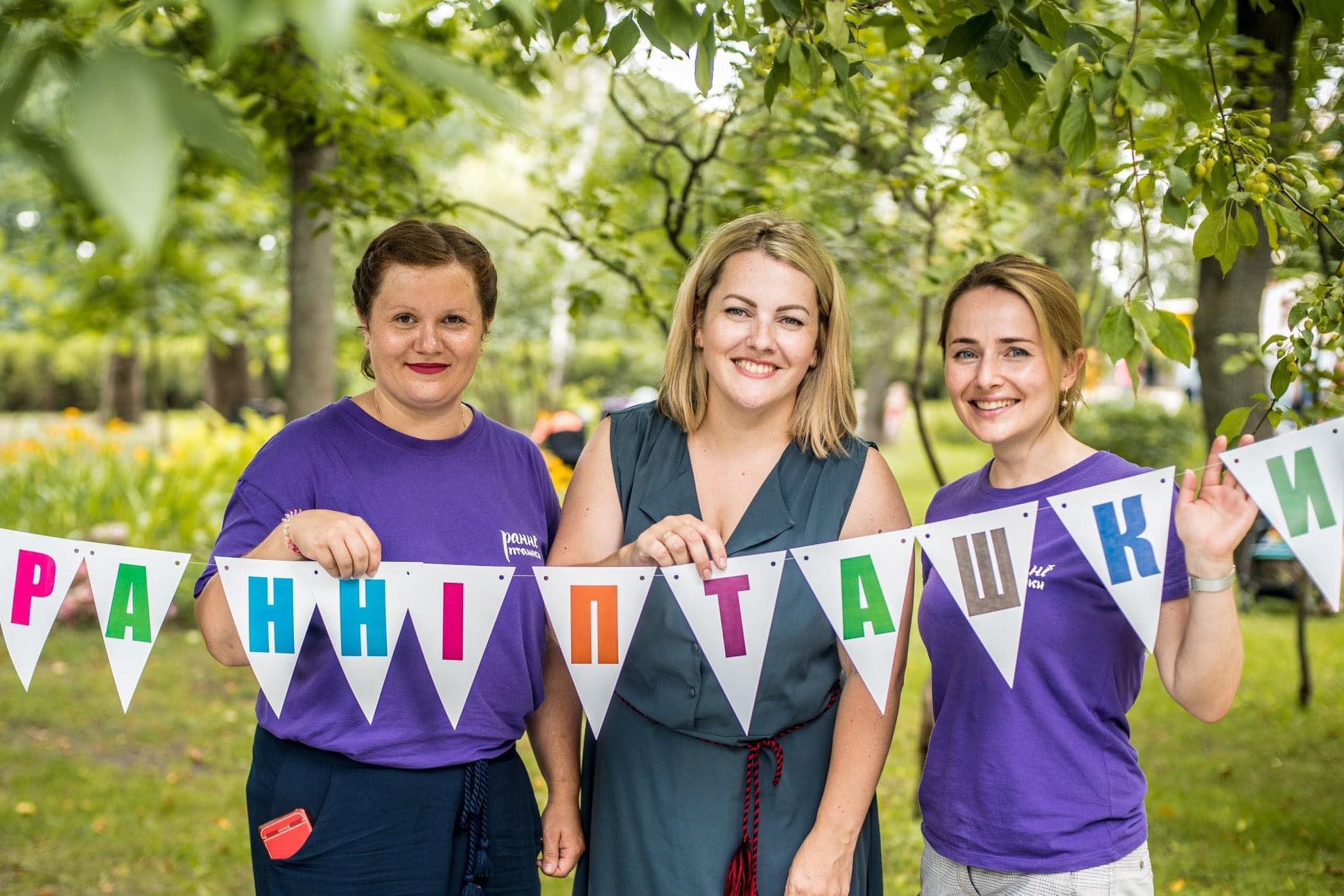
According to statistics, one in ten children do not wait full 9 months, but want to be born earlier. In many cases, mothers are not ready for this. The clinic, either, as the clinics often lack necessary equipment.
We talked to Oleksandra Baliasna, the founder of Early Birds NGO, to outline the problem and share basic facts about pre-term babies.
ABOUT THE PROJECT
Early Birds is an organization that deals with pre-term babies. It was originally a volunteer association. Five years ago, activists set up an NGO, and a year ago, it turned into a foundation. Now the organization works in two areas: information activities – campaigns, training events, flash mobs, courses, as well as financial support of maternity clinics – procurement of consumables, equipment, etc.
Early Birds also provides parental support – at the initiative of the foundation, a 24-hour hotline operates where you can call for free from any mobile number.
Behind the creation of the project is a personal story, since almost all the members of the organization are parents of premature babies.

“My daughter was born weighing 1 kg 270 g 8 years ago. And I was fully engaged in this topic, because I understood that there is no organization working on it in Ukraine. I felt a complete lack of support and an entire emptiness, I could not find similar stories. As I realized this abyss, I decided to act,”
says the founder of the initiative Oleksandra Baliasna.
FACTS
Napoleon, Einstein, Vivaldi, Pushkin, Anna Pavlova are all prematurely born people. We also have such celebrities in our country, but they are often ashamed of it, so they do not even allow to name them. However, these are the ambassadors of the topic who could help draw attention to the problem.
10 years ago, when a 500-gram child was born in Ukraine, they could not survive, so the topic for the third sector is quite new. But in other countries, the movement and organizations that deal with premature babies have existed for a long time: for example, in Norway, the first ones were established 40 years ago.
According to statistics, one in ten children in the world are born prematurely. It does not depend on the country, just somewhere the percentage is higher – for example, in Africa. Scandinavian countries have the lowest loss of premature babies. And if you say in Germany that you did not manage to save a child weighing 1.5 kg at birth, it will be surprising. But in Ukraine, there are a lot of losses.
According to the standards in Ukraine, doctors try to save babies born at the stage from 22 to 37 weeks of pregnancy. At 22 weeks, when babies weigh 500-600 g, very few of them survive or – if they do – many have serious pathologies afterwards.
If the weight is, say, 2 kg or more, with 99% confidence we can say that the child will survive. The smallest patient of the Early Birds weighed 400 g at birth, the second smallest, 470 g.
80% of pre-term babies are twins and triplets. They are often born earlier because multiple pregnancies involve certain risks.
Many causes can lead to pre-term birth: genetic predisposition, diabetes, comorbidities, smoking, alcohol, stress, too low placenta, etc.
If you already have a story of a pre-term birth, then most likely the next deliveries will be the same. Doctors in this case are watching to the week in which the mother gave birth last time. That is, if the first child was born at 28 weeks, the mother is asked to maximally relax at this period during the second pregnancy.
50% of all pre-term births occur for no specific reason. If we talk about it to parents, at least they will not blame themselves. Expectant mothers should be informed, so Early Birds plan to launch a campaign. Moms need to know that premature births can happen.
“We conducted a survey within the organization – 80% of respondents said they would like to know in advance about the likelihood of premature birth and be aware of the risks. For example, I attended training courses, visited a doctor, did all the screenings, but felt that something was wrong. No one even told me that there was such a thing as premature birth,”
Oleksandra recalls.
Many progressive, socially active and educated people think that children do not survive if they are born before 9 months.

It is a common problem when seemingly perfectly competent doctors shift guilt to their mother and say something like: “Why didn’t you manage to keep your pregnancy?” It is a violence that affects the mother’s attitude towards the child and towards herself. Then she has to work with a psychologist for a long time.
There are cases when mothers abandon their children because they were born prematurely. In such cases, the children are taken care of in a maternity clinic, and then transferred to the orphanages. Of course, they are often later adopted, but there are risks.
Sometimes, when surrogate mothers give birth prematurely, future foreign parents refuse the agreement. Crisis situations are also possible when a mother is on the verge, but in such cases, the psychiatrists try to come to the rescue.
Pre-term babies may have different complications, but you can work with them. Their organs are underdeveloped, so it is important to monitor the condition of the child after birth – that is, to follow them up. The organs must catch up’ with their normal period of development, so the child should be monitored by doctors – neurologist, pediatrician, ophthalmologist, cardiologist, orthopedist. Be sure to visit them, because if, say, the retina is not formed, there is a risk of losing sight forever. One of the persons who were born prematurely and became blind is Stevie Vander.
A common problem in almost all premature babies have elevated bilirubin – that is, jaundice. Or an excited nervous system – such children are quickly stimulated and tired quickly. There are nuances to watch out for.
Premature babies attend regular kindergartens and schools, there are no problems with them. If they are dealt with in time and correctly, they socialize and successfully integrate into society.
An important – albeit difficult – part is dealing with losses when a child fails and dies. In this case, parents need specialized psychological help and recovery, very often it can be long annual programs.
In our country, there are good professionals who know how to care for premature babies weighing over 400 g – regardless of status, situation in the country and economy. However, sometimes they lack trivial resources and equipment rather than knowledge or experience.
“To tell someone about the procurement, to prove something and ask to give life-saving medications – in today’s world it’s just wild. There was a story when doctors wrote letters to our foundation and asked to buy a lens for ophthalmology, without which they could not examine children. The discussion started, we were ready for everything, and then we learned the cost – UAH 3,000. We were surprised and, of course, we helped. But the circumstances coincided so much that we presented this lens at a conference, and everyone is the room gave us a round of applause for it. Just for some disc worth of UAH 3,000. What is the financial situation of our healthcare system if it is not able to allocate this money? I’m very sorry for the doctors,” says Oleksandra.
You can support Early Birds NGO with any money – all the money goes to procurement of equipment. Or you can help by disseminating information from the official pages of the project.








